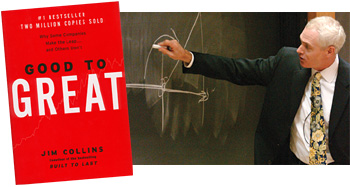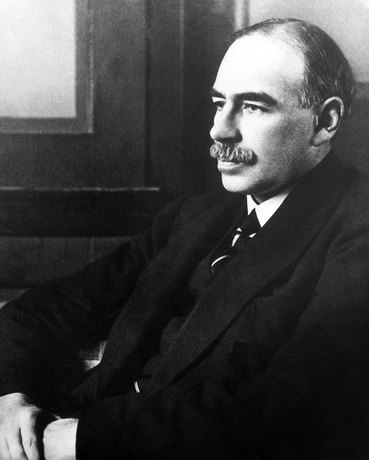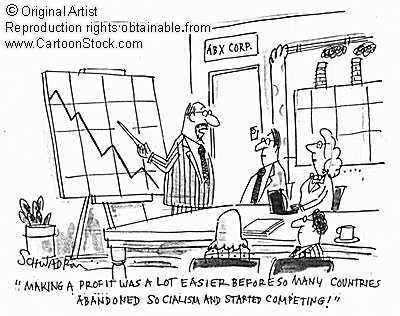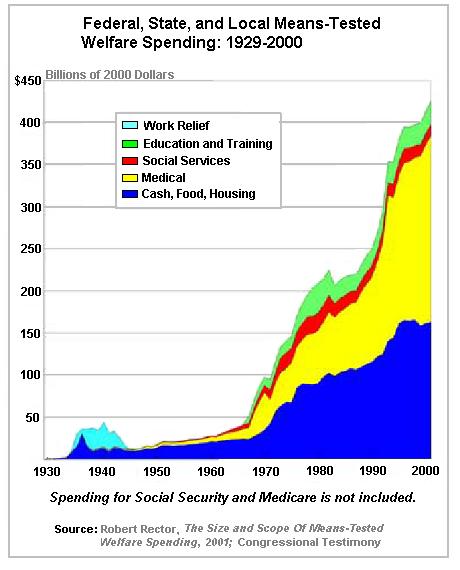 On this Sunday, I would like to introduce you to another of my favorite authors—James Montgomery Boice. Very few authors wrote on the deeper concepts of faith as clearly as Boice did. I remember reading the book, Foundations
On this Sunday, I would like to introduce you to another of my favorite authors—James Montgomery Boice. Very few authors wrote on the deeper concepts of faith as clearly as Boice did. I remember reading the book, Foundations
of God’s City and being inspired to live a life honoring to God. This certainly is easier said than done, but God’s grace is sufficient for all of us. I highly encourage you to read any books from James Montgomery Boice and take the time to digest his thinking. I promise it will enhance your faith and increase your hunger to improve. Here is just a sample of Montgomery Boice’s thinking out of a book called Foundations of the Christian Faith. James describes how God takes the evil actions of others and overrules them for good in a believer’s life. As you enjoy this Sunday, stop and think about how God’s Providence has turned evil into good in your life? Please share your thoughts after reading this article. God Bless, Orrin Woodward
There is probably no point at which the Christian doctrine of God comes more into conflict with contemporary worldviews than in the matter of God’s providence. Providence means that God has not abandoned the world that he created, but rather works within that creation to manage all things according to the “immutable counsel of His own will” (Westminster Confession of Faith, V, i). By contrast, the world at large, even if it will on occasion acknowledge God to have been the world’s Creator, is at least certain that he does not now intervene in human affairs. Many think that miracles do not happen, that prayer isn’t answered and that most things “fall out” according to the functioning of impersonal and unchangeable laws.
The world argues that evil abounds. How can evil be compatible with the concept of a good God who is actively ruling this world? There are natural disasters: fires, earthquakes, and floods. In the past, these have been called “acts of God.” Should we blame God for them? Isn’t it better to imagine that he simply has left the world to pursue its own course?
Such speculation can be answered on two levels. First, even from the secular perspective, such thinking is not as obvious as it seems. Second, it is not the teaching of the Bible.
A Universe on Its Own?
The idea of an absentee God is certainly 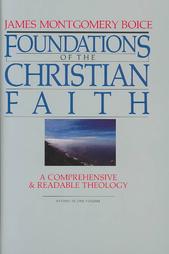 not obvious in reference to nature, the first of the three major areas of God’s creation discussed earlier. The great question about nature, raised by even the earliest Greek philosophers as well as by contemporary scientists, is why there is a pattern to nature’s operations even though nature is constantly changing. Nothing is ever the same. Rivers flow, mountains rise and fall, flowers grow and die, the sea is in constant motion. Yet, in a sense everything remains the same. The experience of one generation with nature is akin to the experience of
not obvious in reference to nature, the first of the three major areas of God’s creation discussed earlier. The great question about nature, raised by even the earliest Greek philosophers as well as by contemporary scientists, is why there is a pattern to nature’s operations even though nature is constantly changing. Nothing is ever the same. Rivers flow, mountains rise and fall, flowers grow and die, the sea is in constant motion. Yet, in a sense everything remains the same. The experience of one generation with nature is akin to the experience of
generations that have gone before.
Science tends to explain this uniformity by the laws of averages or by laws of random motion. But that is not a full explanation. For example, by the very laws of averages it is quite possible that at some time all molecules of a gas or solid (or the great preponderance of them) might be moving in the same direction instead of in random directions, and if that were the case, then the substance would cease to be as we know it and the laws of science regarding it would be inoperable.
Where does uniformity come from if not from God? The Bible says that uniformity comes from God when it speaks of Christ “upholding the universe by his word of power” (Heb. 1:3) and argues that “in him all things hold together” (Col. 1:17). The point is that the providence of God lies behind the orderly world that we know. That was the primary thought in the minds of the authors of the Heidelberg Catechism when they defined providence as
“the almighty and ever-present power of God whereby he still upholds, as it were by his own hand, heaven and earth together with all creatures, and rules in such a way that leaves and grass, rain and drought, fruitful and unfruitful years, food and drink, health and sickness, riches and poverty, and everything else, come to us not by chance but by his fatherly hand” (Question 27). Remove the providence of God over nature, and — not only is all sense of security gone—the world is gone; meaningless change would soon replace its
order.
The same thing is true of human society. Once again, there is great diversity and change. But there are also patterns to human life and limits beyond which, for example, evil does not seem permitted to go. Pink argues along such lines in his study of God’s sovereignty:
For the sake of argument, we will say that every man enters this world endowed with a will that is absolutely free, and that it is impossible to compel or even coerce him without destroying his freedom. Let us say that every man possesses a knowledge of right and wrong, that he has the power to choose between them, and that he is left entirely free to make his own choice and go his own way. Then what? Then it follows that man is sovereign, for he does as he pleases and is the architect of his own future. But in such a case, we can have no assurance that ere long every man will reject the good and choose the evil. In such a case, we have no guaranty against the entire human race committing moral suicide. Let all divine restraints be removed and man be left absolutely free, and all ethical distinctions would immediately disappear, the spirit of barbarism would prevail universally, and pandemonium would reign supreme.
But that does not happen. And the reason it does not happen is that God does not leave his creatures to the exercise of an absolute autonomy. They are free, yet within limits. Moreover, God in his perfect freedom also intervenes directly, as he chooses, to order their wills and actions.
The book of Proverbs contains many verses on this theme. Proverbs 16:1 says that although an individual may debate with himself about what he will say, it is the Lord who determines what he actually speaks: “The plans of the mind belong to man, but the answer of the tongue is from the LORD.” Proverbs 21:1 applies the same principle to human affections, using the dispositions of the king as an example. “The king’s heart is a stream of water in the hand of the LORD; he turns it wherever he will.” Actions are also under the sphere of God’s providence. “A man’s mind plans his way, but the LORD directs his steps” (Prov. 16:9). So is the outcome. “Many are the plans in the mind of a man, but it is the purpose of the LORD that will be established”
(Prov. 19:2 1). Proverbs 2 1:30 sums up by saying, “No wisdom, no understanding, no counsel, can avail against the LORD.”
In the same way, God also exercises his rule over the spirit world. The angels are subject to his express command and rejoice to do his bidding. The demons, while in rebellion against him, are still subject to God’s decrees and restraining hand. Satan was unable to touch God’s servant Job until God gave his permission, and even then certain bounds were set: “Behold, all that he has is in your power; only upon himself do not put forth your hand” (Job 1:12); “Behold, he is in your power; only spare his life” (Job 2:6).
Playing by God’s Rules
The point of major interest for us is not in the area of God’s rule over nature or the angels, however. It is how God’s providence operates with human beings, particularly when we decide to disobey him.
There is, of course, no problem at all with the providence of God in human affairs if we obey him. God simply declares what he wants done, and it is done — willingly. But what about those time when we disobey? And what about the great number of unregenerate people who apparently never obey God willingly? Does God say, “Well, I love you in spite of your disobedience, and I certainly don’t want to insist on anything unpleasant; we’ll just forget about my desires”? God does not operate in that fashion. If he did, he would not be sovereign. On the other hand, God does not always say, “You are going to do it; therefore, I will smash you down so you have to!” What does happen when we decide we don’t want to do what he wants us to do?
The basic answer is that God has established laws to govern disobedience and sin, just as he has established laws to govern the physical world. When people sin, they usually think that they are going to do so on their own terms. But God says, in effect, “When you disobey, it is going to be according to my laws rather than your own.”
We see a broadly stated example in the first chapter of Romans. After having described how the natural man won’t acknowledge God as the true God or worship him and be thankful to him as the Creator, Paul shows that such a person is thereby launched on a path that leads away from God which causes him to suffer grim consequences, including the debasement of his own being. “Claiming to be wise, they became fools, and exchanged the glory of the immortal God for images resembling mortal man or birds or animals or reptiles” (Rom. 1:22-23).
Then comes a most interesting part of the chapter. Three times in the verses, which follow, we read that because of their rebellion “God gave them up.” Terrible words. But when it says that God gave them up, it doesn’t say that God gave them up to nothing, as if he merely removed his hand from them and allowed them to drift away. In each case it says that God gave them up to something: in the first case, “to impurity, to the dishonoring of their bodies” (v. 24); in the second case, “to dishonorable passions” (v. 26); and in the third case, “to a base mind and to improper conduct” (v. 28). In other words, God will permit the ungodly to go their own way, but he has determined in his wisdom that when they go, it will be according to his rules rather than their own.
If anger and tension go unchecked, they produce ulcers or high blood pressure. Profligacy is a path to broken lives and venereal disease. Pride will be self-destructive. These spiritual laws are the equivalent of the laws of science in the physical creation.
The principle is true for unbelievers, but it is also true for believers. The Old Testament story of Jonah teaches that a believer can disobey God, in fact, with such determination that it takes a direct intervention by God in history to turn him around. But when he does, he suffers the consequences that God has previously established to govern disobedience. Jonah had been given a commission to take a message of judgment to Nineveh. It was similar to the great commission that has been given to all Christians, for he was told to “Arise, go to Nineveh, that great city, and cry against it; for their wickedness has come up before me” (Jonah 1:2). But Jonah didn’t want to do God’s bidding, as Christians today often don’t. So he went in the other direction, taking a ship from Joppa, on the coast of Palestine, to Tarshish, which was probably on the coast of Spain. Did Jonah succeed? Not at all. We know what happened to him. He ran into trouble as God took drastic measures to turn him around. After God let him sit in the belly of a great fish for three days, Jonah decided he would obey God and be his missionary.
The Flow of History
Thus far, our study has revealed several uniquely Christian attitudes toward providence. First, the Christian doctrine is personal and moral rather than abstract and amoral. That makes it entirely different from the pagan idea of fate. Second, providence is a specific operation. In Jonah’s case it dealt with a particular man, ship, fish and revelation of the divine will in the call to Nineveh.
There is something else that must be said about the providence of God It is purposive; that is, it is directed to an end. There is such a thing as real history. The flow of human events is going somewhere as opposed to being merely static or without meaning. In Jonah’s case, the flow of history led to his own eventual, though reluctant, missionary work and then to the conversion of the people of Nineveh. In the larger picture, history flows on to the glorification of God in all his attributes, primarily in the person of his Son, the Lord Jesus Christ. That idea is captured in the definition of providence found in the Westminster Confession of Faith which reads, “God the great Creator of all things doth uphold, direct, dispose, and govern all creatures, actions, and things, from the greatest even to the least by His most wise and holy providence, according to His infallible foreknowledge, and the free and immutable counsel of His own will, to the praise of the glory of His wisdom, power, justice, goodness, and mercy” (5, i).
The flow of history leading to the glorification of God is to our good also. For “we know that in everything God works for good with those who love him, who are called according to his purpose” (Rom. 8:28). What is our good? Obviously, there are many “goods” to be enjoyed now, and this verse includes them. But in its fullest sense, our good is to enter into the destiny we were created for: to be conformed to the image of Jesus Christ and thus “to glorify God, and to enjoy him forever.” The providence of God will surely bring us there.
To speak of the “good” introduces the subject of the “bad.” And since the verse in Romans says that “in everything God works for good” to those who are the called ones of God, the question immediately arises as to whether or not this includes the evil. Is evil under God’s direction? It would be possible to interpret Romans 8:28 as meaning that all things consistent with righteousness work to good for those who love God, but in the light of Scripture as a whole that would be an unjustified watering down of the text. It is all things, including evil, that God uses in accomplishing his good purposes in the world.
There are two areas in which God’s use of evil for good must be considered. First, there is the evil of others. Does this work for the believer’s good? The Bible answers Yes by many examples. When Naomi’s son, an Israelite, married Ruth, a Moabitess, the marriage was contrary to the revealed will of God and hence was sin. Jews were not to marry Gentiles. Still the marriage made Ruth a daughter-in-law of Naomi and thus enabled her to be exposed to the true God and eventually come to the place where she made a choice to serve him. “Your people shall be my people, and your God my God” (Ruth 1:16). After Ruth’s husband died, she married Boaz. Through her new husband, Ruth entered into the line of descent of the Lord Jesus Christ, the Messiah (Mt. 1:5).
David was a person who undoubtedly suffered greatly through the sins of others against him, including even the sins of his sons. But as God worked in him through these experiences, he grew to see the hand of God in his suffering and expressed his faith in great psalms. The psalms have been an immeasurable blessing to millions.
Hosea suffered through the unfaithfulness of his wife Gomer. But God used his experience to bring forth one of the most beautiful, moving and instructive books of the Old Testament.
By far the greatest example of the sin of others working for the good of God’s people is the sin which poured itself out against the Lord Jesus Christ. The leaders of Christ’s day hated him for his holiness and wished to eliminate his presence from their lives. Satan worked through their hatred to strike back at God by encouraging merciless treatment of the incarnate Christ. But God turned this to good, working through the crucifixion of the Lord for our salvation. In none of this was God responsible for evil, though human sin and the sin of Satan were involved. In none of this was God made a partner in sin. Jesus himself said, in reference to Judas, “The Son of man goes as it is written of him, but woe to that man by whom the Son of man is betrayed!” (Mt. 26:24). Earlier he had said, “It is necessary that temptations come, but woe to the man by whom the temptation comes!” (Mt. 18:7). Nevertheless, without himself being a party to sin, God worked through it to bring forth good in line with his own eternal purposes.
The other area in which God’s use of evil for his own purposes must be considered is our own sin. This point is somewhat harder to see, for sin also works to our own unhappiness and blinds our eyes to God’s dealing. But there is good involved anyway. For example, Joseph’s brothers were jealous of him because he was their father’s favorite. So they conspired and sold him to a group of Midianite traders who took him to Egypt. There Joseph worked as a slave. In time, he was thrown into prison through the unjust accusations of a rejected woman. Later he was brought to power as second only to Pharaoh and became the means by which grain was stored during seven years of prosperity for the subsequent seven years of famine and widespread starvation. During that period his brothers, who were starving along with everyone else, came to Egypt and were helped by Joseph.
They were helped by the one they had rejected! And the outcome was in God’s control, as Joseph later explained to them.
I am your brother, Joseph, whom you sold into Egypt. And now do not be distressed, or angry with yourselves, because you sold me here; for God sent me before you to preserve life. For the famine has been in the land these two years; and there are yet five years in which there will be neither plowing nor harvest. And God sent me before you to preserve for you a remnant on earth, and to keep alive for you many survivors. So it was not you who sent me here, but God. (Gen. 45:4-8)
After the death of their father, the brothers thought that Joseph would then take vengeance on them. But he again calmed their fears saying, “Fear not, for am I in the place of God? As for you, you meant evil against me; but God meant it for good, to bring it about that many people should be kept alive, as they are today” (Gen. 50:19-20). There had been great evil in the hearts of the brothers. But God used their evil, not only to save others, but even to save their own lives and those of their wives and children.
Patience and Gratitude
There will always be some who hear such a truth and immediately cry out that it teaches that Christians may sin with impunity. This accusation was made against Paul (Rom. 3:8). But it teaches nothing of the kind. Sin is still sin; it has consequences. Evil is still evil, but God is greater than the evil. That is the point. And he is determined to and will accomplish his purposes in spite of
it.
The providence of God does not relieve us of responsibility. God works through means (the integrity, hard work, obedience and faithfulness of Christian people, for example). The providence of God does not relieve us of the need to make wise judgments or to be prudent. On the other hand, it does relieve us of anxiety in God’s service. “If God so clothes the grass of the field, which today is alive and tomorrow is thrown into the oven, will he not much more clothe you, O men of little faith?” (Mt. 6:30). Rather than being a cause for self-indulgence, compromise, rebellion or any other sin, the doctrine of providence is actually a sure ground for trust and a spur to faithfulness.
Calvin has left us with wise advice on this subject.
Gratitude of mind for the favorable outcome of things, patience in adversity, and also incredible freedom from worry about the future all necessarily follow upon this knowledge. Therefore, whatever shall happen prosperously and according to the desire of his heart, God’s servant will attribute wholly to God, whether he feels God’s beneficence through the ministry of men, or has been helped by inanimate creatures. For thus he will reason in his mind: surely it is the Lord who has inclined their hearts to me, who has so bound them to me that they should become the instruments of his kindness.
In such a frame of mind the Christian will cease to fret in circumstances and will grow in the love and knowledge of Jesus Christ and of his Father, who has made us and who has planned and accomplished our salvation.









